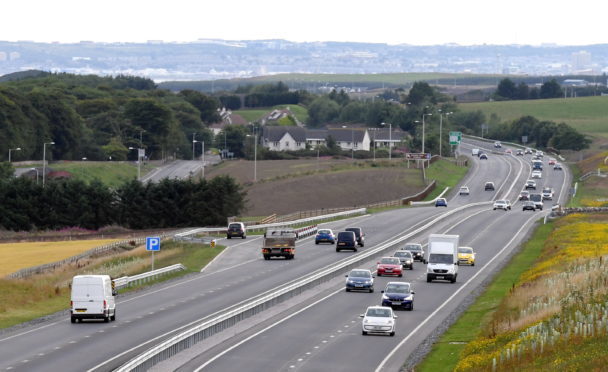Balfour Beatty saw profits quadruple in the first half of this year despite a £44 million hit from the collapse of Carillion.
The group leading the consortium constructing the Aberdeen Western Peripheral Route (AWPR) said pre-tax profits grew from £12m to £50m in the six months to the end of June as it hailed its “Build to Last” transformation programme.
The results came despite revenue dipping from £3.5 billion to £3.2bn in the period as the firm was left out of pocket following the collapse of Carillion.
Balfour Beatty made a £44m provision in its 2017 accounts to cover extra costs linked to the AWPR – a joint venture with Balfour, Carillion and Galliford Try.
Fears were raised last year that the fate of the long-awaited bypass may be in jeopardy as Galliford Try subsidiary Morrison Construction and Balfour Beatty were left to complete the job. However it is now nearing completion.
Carillion’s crash came after a string of profit warnings and despite it securing key UK Government contracts.
Balfour also reaped £22m from disposals, and its US construction arm reported a profit from operations of £17m.
The group said “reducing costs and raising productivity across its operations” was the reason behind the strong performance.
Boss Leo Quinn said: “All our businesses are now either achieving industry standard margins or on track to do so in the second half.
“The disciplines installed under Build to Last are also enabling us to increase the order book with key infrastructure projects to translate Balfour Beatty’s expert capabilities into future profitable growth.”
Mr Quinn is leading an overhaul of the company.
Underlying profit from operations rose to £66m from £39m, while Balfour’s order book increased to from £11.4bn to £12.6bn.
“Given the strength of our balance sheet and the board’s confidence that the group’s full-year earnings will meet expectations, we are raising the interim dividend by 33% and plan to repay the outstanding convertible bonds this year,” Mr Quinn added.
